Lupus: "Believe you can be healed"
Published 14 Dec 2022 • By Rahul Roy
Seda details her experiences dealing with misdiagnoses at a young age to championing a cause to increase awareness about Lupus. Her endeavors and beliefs gave her strength to fight the illness and inspire people everywhere.
Read her story now!
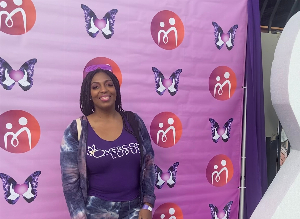
Hello Seda, thank you very much for agreeing to share your experience with Carenity.
First of all, could you tell us more about yourself?
I am an overcomer, mother, writer, inventor and have owned a graphic design & marketing agency for 17 years . I’m using my gifts to transform pain into purpose. I have a 21-year-old son in college, am a new empty nester and am a voice for the lupus community.
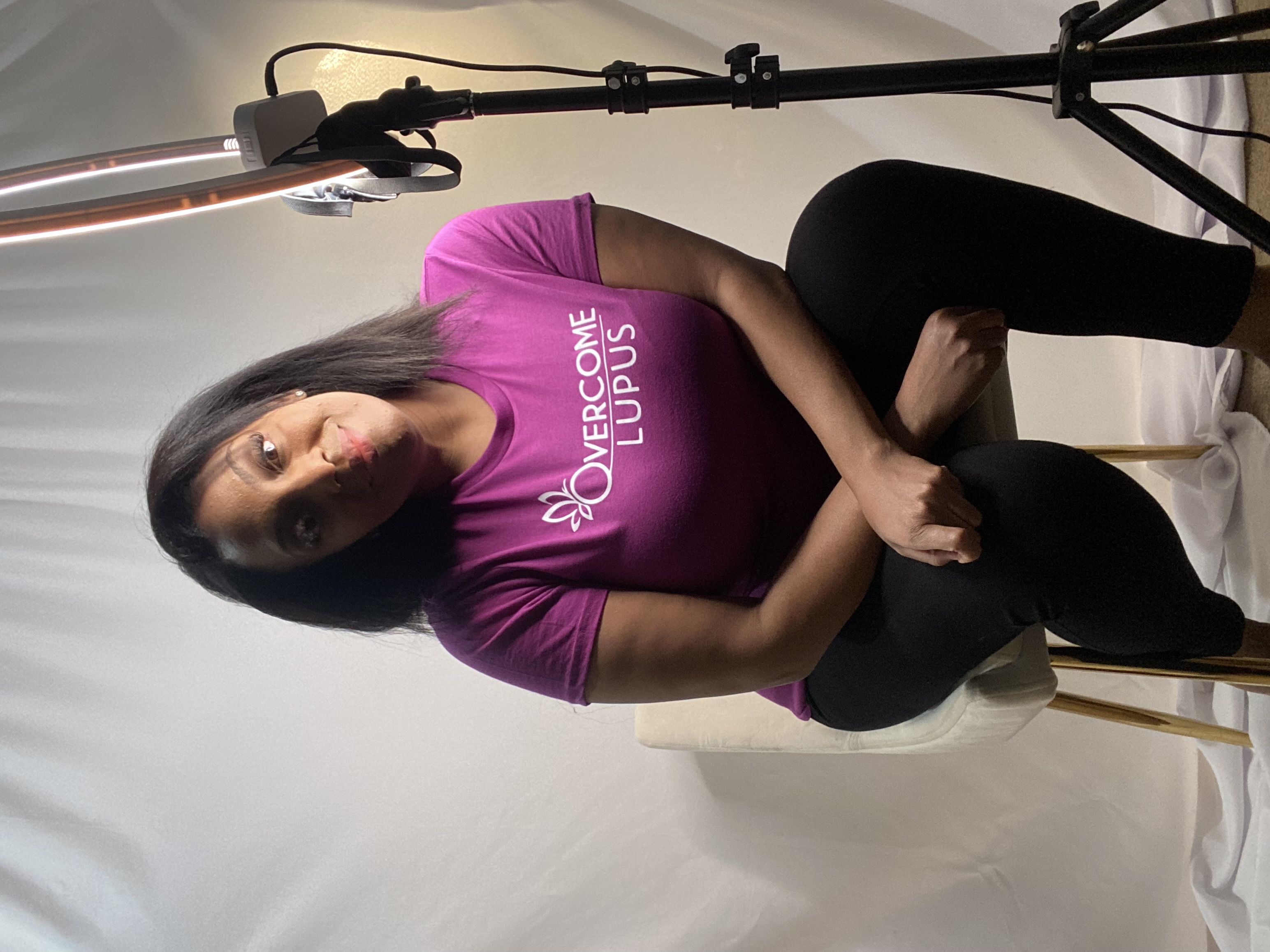
You have lupus. When did lupus appear in your life? Could you tell us what your first symptoms were? How did you feel about these symptoms?
I was diagnosed in 2011 at the height of my career but looking back I realize lupus was there my whole life. I had tachycardia and heart surgery in high school, severe skin issues, migraines, pain my mother called “growing pains” in my legs (likely joint pain) and my hands would instantly turn white in the cold. I was always in the hospital or seeing a doctor for one reason or another. However, I never let it stop it me from accomplishing anything. I was your classic overachiever who had pretty much accepted the fact that I was a “medical weirdo”. In hindsight I’m glad I didn’t know because I might not have felt as invincible as I did or I may not have kept the feeling of there being no limits on my potential.
At what point did you decide to see a health professional? How long did it take to make the diagnosis? How many doctors did you see?
When I had the flare that changed everything that precipitated my diagnosis, my initial symptoms were extreme swelling in my stomach to the point of looking pregnant. I was under extreme stress and felt like I needed to get away, so I went on vacation. Even though I had been a competitive swimmer for many years, suddenly I couldn’t swim even one lap, and I had been coughing up blood. I called the paramadics to the hotel and my vitals were stable so they didn’t take me to the hospital. I went to an urgent care on my own and they thought I might have an enlarged heart but later I discovered I really had fluid around my heart and in my lungs. However the urgent care sent me back to the hotel too.
I was physically swelling on site and my best friend, who my family flew out to bring me home because I could no longer drive, saw this happening and rushed me to the ER. They misdiagnosed me with everything from congestive heart failure, to the Swine Flu to H1N1. The first hospital released me without treatment or diagnosis and I thereafter became septic because my kidneys weren’t filtering. A second hospital was merely giving me antibiotics and I had an extremely high fever and was basically dying. My friend confronted the doctors yelling at them saying that what they were doing wasn’t working and they needed to figure it out. So that’s when they put together a medical team like the TV show “House” that looked at my entire medical history, including my childhood issues. Only then were they only able to figure out it was lupus and administered steroids instead and anti-kidney rejection drugs.
At the point of my diagnosis, I was given 3 weeks until total organ failure.
How did you feel when you were told of the diagnosis? Were you able to receive all the necessary information on what the disease was?
When I was in the hospital, all I could think about was my 10 year old son and who was going to take care of him and how. I began giving instructions on where to find things, life insurance policies and basically making end of life plans because my case was so severe. I definitely wasn’t taking in all that there was to learn or know at the time. In fact, the doctors there in Arizona where I was told me NOT to Google it, because of all the awful misinformation I would find.
And frankly when you hear certain things with my Christian faith, I was trained “not to receive it”, not to receive negativity spoken over my life and not to take ownership of disease and say certain phrases like “My Lupus” “I have lupus”, “I have cancer” etc. So belief in my healing, prayer warriors in my church and people that fasted for me was also a big factor in why I am where I am today.
How do you feel about your lupus care and follow-up? What would you like to change / improve?
My family researched as much as they could and when I got back to Los Angeles, put me under the care of the foremost medical authority on Lupus, with the only Lupus only medical practice in the country at the time. I was under the care of Dr. Daniel Wallace at Cedar Sinai, the same doctor that Toni Braxton has, and he helped to save my life. And it was a long journey ahead and even under his care and back at home, I just wanted to get back to my normal life and admittedly was in denial for a long time.
His office was diligent about getting me to appointments and starting experimental treatments, clinic trials and chemotherapy and I really wasn’t ready to receive their help, so I wasn’t a very compliant patient. I was still really coming to terms and processing all that had happened.
In terms of a major improvement, I feel I was done a real disservice in how I was told the diagnosis. Doctors were practically jumping out their chairs to shove chemotherapy level drugs down my throat. There was no time to waste in coddling me about the diagnosis, treatment plan and time to process information. I had to make a virtual on the spot decision to go with these drugs whose side effects are known to cause cancer or unadvisedly go it on my own with natural remedies. It was basically like “You’re gonna die, so you need to take this now.”
But taking on that level of negative thinking is exactly why people turn south in the hospital. In my 26 hospitalizations, often times with spans of a month or more, I’ve seen so many people on the brink of a turnaround, come to accept and take ownership of a negative outcome, come to a point of acceptance of it and pass away. I had the spiritual fortitude not to accept this and stopped them mid-sentence and would make them rephrase how they spoke to me. But most people won’t do that, they just accept it as truth and allow that in their space.
When the moment is as crucial as your life being on the line as mine was, I would have much rather a doctor sit down, hold my hands, look me in the eye and tell me, “This is the challenge, and this is how we are going to overcome this together”. In this way, as a patient, my spirit isn’t broken. Now I have a willing and readiness to take on the fight. And as a result, my family members who have heard this news when told the other way, are also not in hysterics, and repeating and speaking death sentences back to me. They’re not on the phone with all the other relatives who aren’t there, spewing this same negativity and speaking death over my life over and over. It’s really something I’d like to spearhead an initiative for in hospitals and change the language surrounding diagnosis, to put the care back in healthcare.
Are you on any medication? If so, which ones? Do they suit you?
Yes, thank God I’m no longer on prednisone at all and successfully tapered off. I’ve been on dialysis before and had 2 rounds of chemo for lupus. My kidney function is less than 20 percent currently and lupus continually causes hypertension in me so I’m currently taking Mycophenolate, Plaquenil, Metoprolol, Losartan, Amlodipine, Acyclovir, Pepsid, Progesterone, Coumadin (warafin) and Dexamethasone eye drops and supplements of B-12, Turmeric, Vitamin D plus Calcium, Fish Oil, and Roots Nutrition Power Circulators
Do you implement in your daily life some more natural alternatives (change of diet, lifestyle...) to improve your health? What changes have you noticed?
Yes, I’ve considerably slowed down the pace of life that I lived in LA and now I live in Northern California. I’ve figured out how to have a lot less clients while making the same amount. But at the height of illness, I stopped working completely. I had to totally destress.
I exercise at least 30 minutes at least 3-4 times per week. I’ve journaled to discover what my personal food triggers are, so I avoid concentrated tomato sauces and pork which I’ve found made me feel bad. I’m transitioning to a more plant-based diet and consider myself a flexitarian and eat small amounts of chicken, seafood and mostly plant based with tofu based dairy substitutes. I would watch my potassium and phosphorus intake but recently learned I can have more of that, the more fiber & plant-based I eat.
I read scripture and pray every morning without fail. I also make every effort to reduce stress, limiting outings and major events to no more than one or two things per day with days of no outings in between. I alternate strenuous physical activities with rest. I can’t live without Chia Seeds and B-12 for energy. CBD lotion I recently discovered has provided me immediate pain relief for minor joint pain on contact.
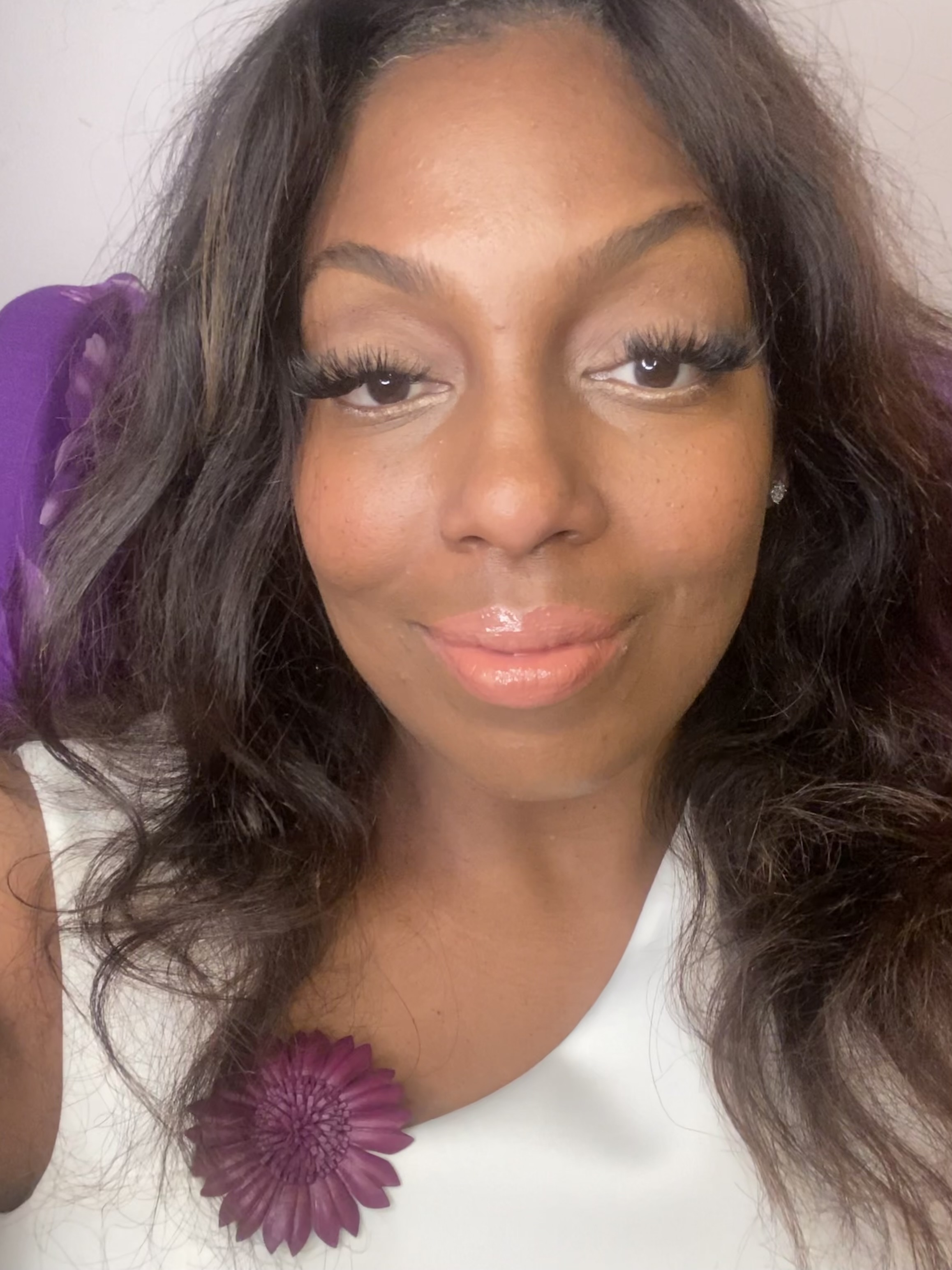
What is the impact of the disease on your daily life? Are there things you cannot do or that you prevent yourself from doing?
I don’t think you’ll ever get me to say I can’t do something. It really changes for me day to day. I’m always the person to prove you or even myself wrong and I’m constantly being surprised by what I can do. Often its not necessarily that I can’t do it at all, but it just might be that I can’t do it right now. There are those days where brushing my teeth is an accomplishment and others where I’ve run on the treadmill for 20 minutes and leg pressed 200 lbs. That’s how lupus is.
The main impact it has is that if I’m going to do something strenuous or an all day event like Disneyland, then I have to save up some days of energy by doing little in the days prior. And realistically while I’m there, I’ll conserve in other ways, like you guys go on those two rides on your own and I’ll be sitting right here when you get back. And on a daily basis, I’ll pace myself by alternating activity with rest. Even in work, I won’t do a solid 8 hours straight. I’ll work a couple hours and break, or do one task and take a break. It makes for longer days, but it works for me.
Do you talk easily about your condition to those around you? Do they understand the disease? Do you feel supported?
Yes because of my activism its made it a lot easier to talk to people about lupus. I take most every opportunity to educate people about it to spread awareness and dispel any misconceptions. I make the explanation simple in telling people its basically like being allergic to yourself, that our bodies fight itself all day long. It can’t tell the difference between healthy cells and sick cells, so it fights everything. This is why we call ourselves warriors and why we may often appear tired.
I feel this explanation makes it easier for people to grasp. I feel people are empathetic in the moment but their support often doesn’t go further than that until it personally affects them, and that’s when I start getting phone calls.
Do you think there is not enough awareness concerning lupus? What could be done about it?
NOT EVEN CLOSE.
That’s the million dollar question. I study organizations like Susan G. Komen to see how they brought breast cancer awareness from obscurity to where it is today. But honestly people don’t seem to care until someone famous gets it, or makes it cool with a worldwide corporate branding campaign or it personally hits right in your home. So more celebrities who have it who are hiding it, admitting to it would be helpful. Someone influential enough with deep enough pockets to put resources toward a deep concentrated effort would go a long way.
The world getting Covid and people getting long Covid honestly gave more people a taste of what it could be like to live with a chronic illness and I think empathy is the first step in spreading awareness and getting people to care about a cause. First empathy, then making it a priority, then action, then funding, then a mindset change. And hopefully a definitive cause and cure.
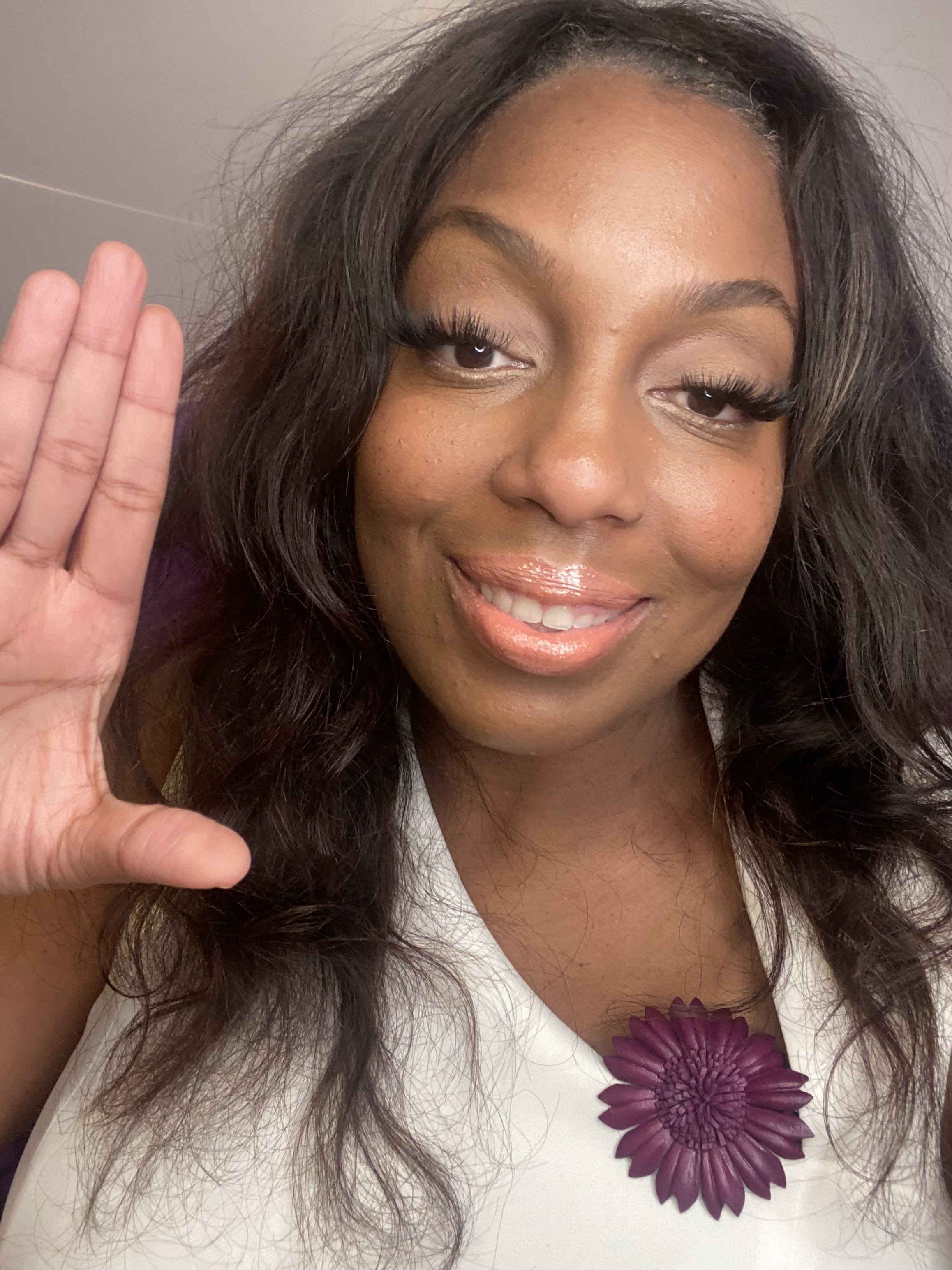
You are quite active on social media through @overcomelupus. What motivated you to start your page and what messages would you like to convey?
I originally started the page because I wanted to write a book and I thought blogging would keep me more accountable. I thought I could research by talking to people and look at and learn from the lives of others with lupus, which is why I follow so many people. I wanted to Blog on Instagram vs a traditional blog because I wanted to be where people already were instead of trying to pull them to me.
It instantly exploded and most of the followers I have now, I had within 3 months. So the Instablog, I called it, became more of the destination than the book. But I also found that many of the Lupus pages that existed when I started in 2016 were focused on the medical side and the aspect of being ill, showed people on IVs and in hospital beds. Despite the little awareness that there is, I’d always meet people who would say, “Oh I know someone with Lupus….but they died”. So I overall wanted to be the someone they knew with lupus who not only lived, but was thriving, and to provide images of hope and inspiration instead of sickness and sadness.
After I made the first lupus photo filter for social media profile pics to spread awareness, that also exploded and I had to give that effort a name, and being an activist for Lupus and helping to elevate our concerns and voices virtually chose me.
What advice would you like to give to Carenity members who are also affected by lupus?
My Top 10 Tips for anyone living with Lupus Is:
- Believe you can be healed and read scripture & pray
- Treat health management like its your new career
- Destress like you clean house
- Don’t allow others to limit you or speak negativity over your life
- Journal to find your “Magic Mix” and what equals good days and what = bad days to help create your own personalized approach
- What you eat does matter.
- Alternate intense activities with rest
- Exercise is amazing therapy and eventually gives more energy than it takes
- Accept Help and give yourself some grace
- When you do achieve remission, live some days like you forgot you ever had it.
Any last words?
Remission is possible. Many don’t focus on it, but socioeconomic and mental stability is also the key to being in remission. Feeling secure about your living situation, having stress free relationships and environment, reducing anxiety & depression and having immediate access to healthcare affordable enough to use it and stopping every secondary condition and problem at its outset is the key to staying in remission.
Here’s where I live online. Let’s talk about it all and vibe with others in the community
Instagram www.instagram.com/overcomelupus
Facebook www.facebook.com/overcomelupus
Listen to my stories on The Elly Health Companion App @https://www.ellyhealth.com/
Lupus Merch – All proceeds benefit Lupus Fundraisers https://overcomelupus.sellfy.store/
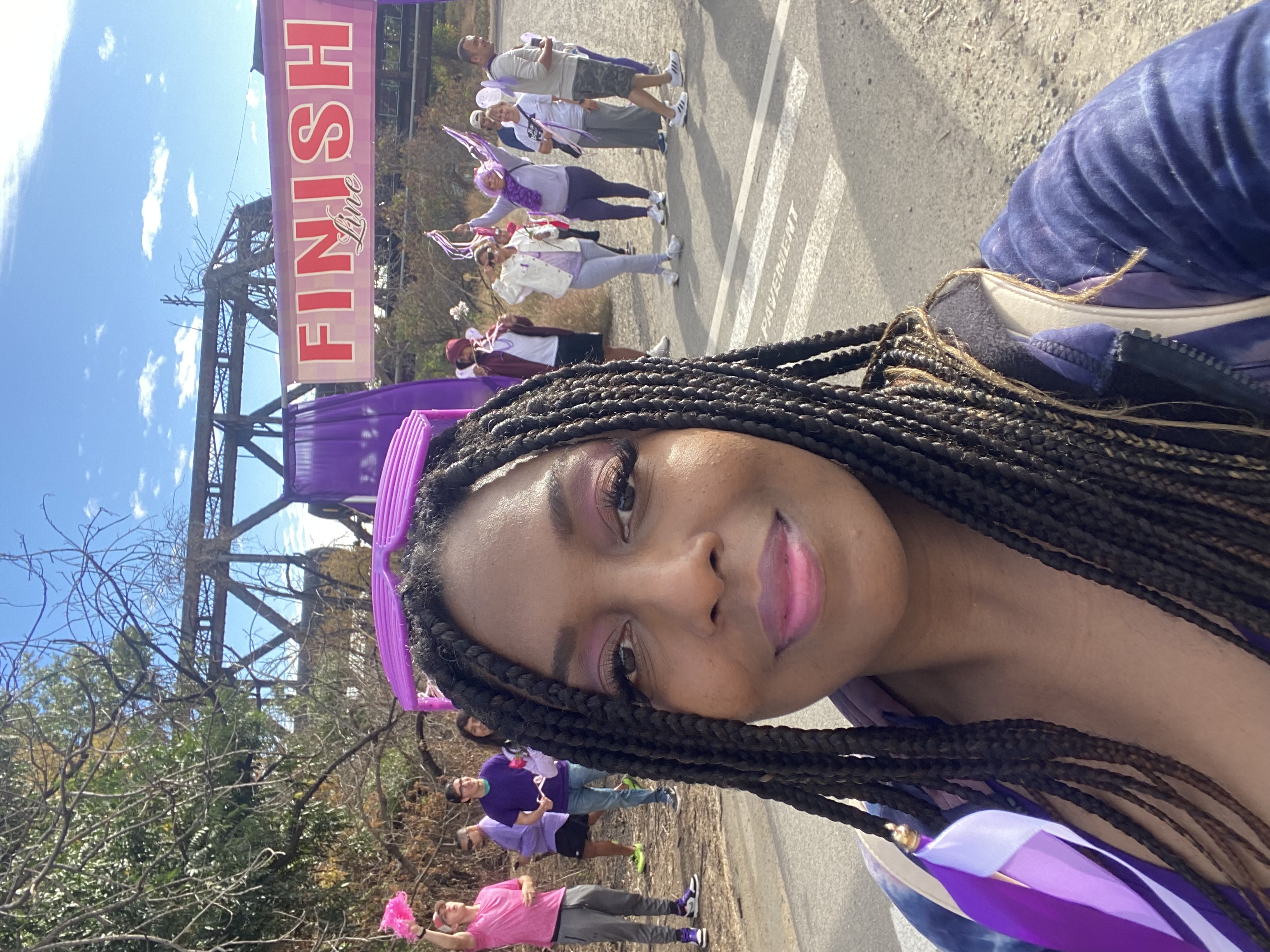
Many thanks again to Seda for having given us this testimony!
Did you find this interview useful?
Click "Like" and share your opinion and your questions with the members of the community below in the comments!
Take care!
Comments
You will also like

Fifteen percent of osteoporosis patients who take 'drug holidays' suffer bone fractures
7 May 2018 • 8 comments

Dietitian Tanya helps the Lupus community to reduce their symptoms with diet and healthy living.
23 Aug 2023

 Facebook
Facebook Twitter
Twitter
